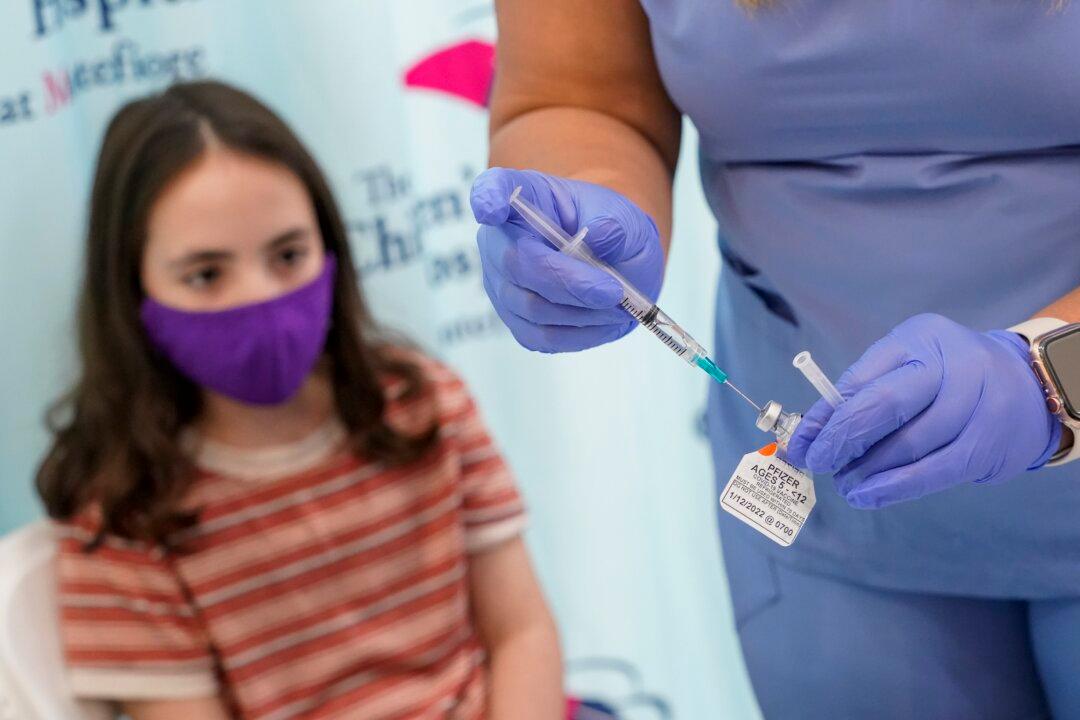Pfizer and BioNTech have asked the U.S. Food and Drug Administration (FDA) to grant emergency use authorization for a booster for their COVID-19 vaccine for children aged 5 to 11 years old.
Earlier this month, the companies released data from a mid- to late-stage study that they say shows a boost in antibodies from a third dose of their COVID-19 vaccine, providing increased protection against COVID-19 and the Omicron variant.





